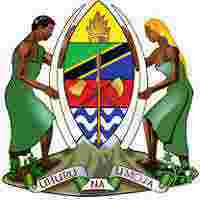 |
| KAZI ZA HALMASHAURI 2023 |
Jobs in Tanzania 2023: New Government Job Vacancies Katavi at NSIMBO District Council, 2023
💥UNASUBIRI NINI? FOLLOW US ON INSTAGRAM. CLICK HERE!💥
NAFASI ZA KAZI HALMASHAURI YA WILAYA NSIMBO
Government Jobs Opportunities NSIMBO District Council 2023, Ajira Mpya NSIMBO 2023, Nafasi Za Kazi Serikalini 2023
Nsimbo District Nsimbo District is a district council in the
Katavi Region of Tanzania's Southern Highlands established in 2012. The
district lies in the middle of the region east of the city of Mpanda. It
is a tropical environment of mostly forest reserves and agricultural
economy. .
Recommended:
History Originally, Nsimbo was a part of both the Tabora Region
and Mbeya Regions. In 1973, the Rukwa Regional Council was created from
parts of those two regions, and in 1983 the Mpanda District Council was
created within Rukwa. In 1990 the town of Mpanda split off from the
district council to create a separate town council. In 2012, The Katavi
Region split off from the Rukwa Region, with the 4 districts of Mpanda
District, Mpanda Town, and a new district councils of Mlele District and
Nsimbo District. In 2015 the Mpanda Town Council was promoted to a
municipal council, and in 2016 the portions of Mlele to the south of
Nsimbo would be split off to form the Mpimbwe District Council.
Recommended:
Geography The Nsimbo District lies in the middle of the Katavi
Region east of the city of Mpanda. The Katavi districts of Mpanda
District and Mpanda Municipality lie to the west, Mlele District is to
the east, and Mpimbwe District is south of Nsimbo. North is the Kaliua
District of the Tabora Region, and south-west is the Nkasi District of
the Rukwa Region. The district covers an area of 14,623 square
kilometres (5,646 sq mi). Most of the district is protected forest
reserve with 8,920.03 km2 (3,444.04 sq mi) of protected forest. The
elevation varies between 1,000 m (3,300 ft) to 2,500 m (8,200 ft).
Within the district is much of the Katavi National Park and Ugalla River
Forest Reserve which overlaps with the Ugalla River National Park into
the Tabora Region.
Read Also:
Economy
The economy is primarily agriculture. Food crops grown are cassava,
maize, paddy, sweet potatoes, round potatoes, bananas, yams, and other
fruits and vegetables. Crops grown for money are tobacco, peanuts,
sunflowers, sesame, and sugarcane. There are no large or medium scale
industries or mining operations in the district, but locals do small
scale mining of gold, copper, silver, lead, tungsten, rose quarts, and
nitre.
Recommended:
New Government Jobs Vacancies at NSIMBO District Council, July 2023
Today
we announce jobs at NSIMBO District Council. Read carefully all
currently available jobs descriptions by downloading PDF File attached...
(KUSOMA MAELEZO KAMILI IN SWAHILI AND MODE OF APPLICATION BONYEZA LINK HAPA CHINI KU DOWNLOAD PDF FILE) Full details and application download PDF file through the link below:Position: Village Executive Officers (5 Posts)
Deadline: 30th July, 2023.
DOWNLOAD PDF FILE HERE!



No comments:
Post a Comment